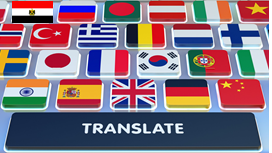
Why you need Legal Translation
As with any sort of translation, legal translation consists of transforming documents from one source language into a different target language. But there are some peculiarities about this type of translation. Legal translation stands at the crossroads of three areas of inquiry—legal theory, language theory and translation theory—that are fundamentally indeterminate, largely because of their reliance on natural language (Joseph 1995: 14). The law itself is quite an unstable discipline. It relies on some abstract and changing notions, that are extremely different depending on the country or region where those laws are applied. Legal discourse is in a state of constant flux: its meaning shifts depending on the language in which it is expressed and even depending on the reader (Harvey, M. 2002). Laws are interdisciplinary, as they regulate most areas of human activity. Legal translators must have a profound knowledge of concepts and terminology not just related to law, but also related to the area to which it is being applied.



